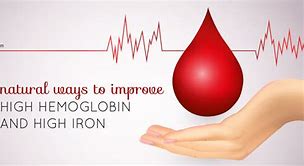Hemochromatosis - Blood Iron Levels

How hemochromatosis affects your organs
15 March, 2023
Iron plays an essential role in several body functions, including helping produce blood. But too much iron is toxic. A hormone secreted by the liver, called hepcidin, controls how iron is used and absorbed in the body. It also controls how excess iron is stored in various organs. In hemochromatosis, the role of hepcidin is affected, causing the body to absorb more iron than it needs.

How do you know if you have hemochromatosis?
29 January, 2023
A blood test can be used to screen people who may have hemochromatosis by measuring how much iron is in their blood. Affected people with or without a known family history of hemochromatosis can be diagnosed through blood tests for iron followed by genetic testing if they are symptomatic or have complications. Symptoms of hemochromatosis include

Why is too much iron dangerous?
15 November, 2022
Hemochromatosis, or iron overload, is a condition in which your body stores too much iron. It’s often genetic. It can cause serious damage to your body, including to your heart, liver and pancreas. You can’t prevent the disease, but early diagnosis and treatment can avoid, slow or reverse organ damage.

Hereditary hemochromatosis (he-moe-kroe-muh-TOE-sis) causes your body to absorb too much iron from the food you eat
14 July, 2022
Treatment includes regularly removing blood from your body. Because much of the body's iron is contained in red blood cells, this treatment lowers iron levels.
Health & Fitness
Remedies
Supplements
Health Programs
Weight Loss
Yoga Burn







